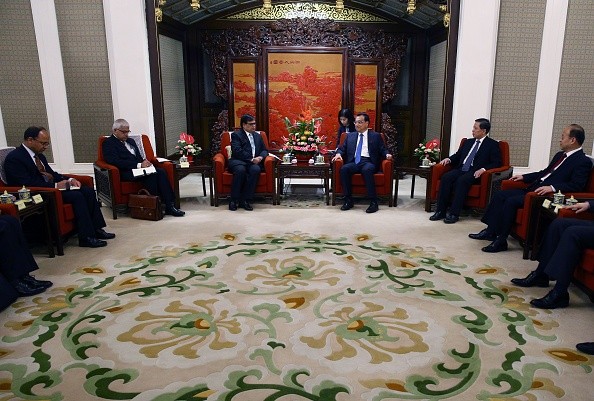China emerged as one of the top contributors to Nepal's economy with more than two-thirds of the total foreign direct investment (FDI) coming from the country, which Nepal received during the first half of the current fiscal year that started in mid-July, according to Nepal's Department of Industries (DoI).
The Xinhua News Agency cited DoI statistics which showed that Nepal had received China's investment pledge worth more than $51.77 million during the first half of the fiscal year.
According to the data, this represents about 68 percent of total FDI, worth about $76.39 million, which other countries have pledged during the period.
The report said that as economic activity between China, the world's second largest economy, and the Himalayan country grew in recent years, China became one of the country's biggest FDI contributors.
With an investment pledge that reached $57.47 million, China was the largest source of FDI pledges to Nepal, in the fiscal year 2015-2016.
According to Pradeep Kumar Koirala, director general of DoI, most of the Chinese investors have shown interest in investing in Nepal's infrastructure, tourism, and restaurant businesses.
Meanwhile, Satish More, a director of Hongshi-Shivam Cement Private Limited, a Nepal-China joint venture, said that their country is underdeveloped and in recent years, the Chinese investment in the country has been rising in recent years because they saw opportunities for investment in almost all areas.
"There is a scope for increased investment from China if we develop our infrastructure," the director said.
Compared with the first half of last year, when India's fuel blockade affected Nepal, the total pledged FDI that Nepal received was $59.93 million but during the same period this year, it rose to $76.39 million, the report said.
In March last year, Nepali Prime Minister K P Sharma Oli's visit to China resulted in the signing of ten agreements, which include a landmark deal on transit trade.
Under the transit agreement, Nepal will have access to the sea, through the Chinese port of Tianjin, a move that is seen to reduce its economic dependence on India, the report said.



























